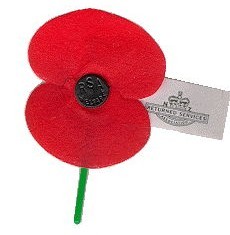ANZAC Day address

Acting Prime Minister, Hon Bill English and Dr English; Your Excellencies, Members of the Diplomatic Corps and, in particular, Your Excellency the High Commissioner for Australia to New Zealand Mr Paul O'Sullivan and Mrs O'Sullivan; Representatives of the Defence Force, Government ministries and agencies including the Police; members of the Royal New Zealand Returned and Services Association; Your Worship the Mayor of Wellington, Kerry Prendergast and Mr Nicholls; Distinguished guests otherwise, Ladies and Gentlemen.
I begin by greeting everyone in the languages of the realm of New Zealand, in English, Māori, Cook Island Māori, Niuean, Tokelauan and New Zealand Sign Language. Greetings, Kia Ora, Kia Orana, Fakalofa Lahi Atu, Taloha Ni and as it is the morning (Sign "Good morning")
Ninety-five years ago today, co-incidentally on a Sunday, as the sun rose over the coast of Turkey, the Australian and New Zealand Army Corps-who became the immortal ANZACs-landed at Gallipoli.
Brimming with nervous anticipation, they were thrust into one of the more unfortunately planned, prepared and ultimately ill-fated campaigns in modern warfare.
Nearly a century on from that fateful day, it is difficult to imagine the calamities that unfolded after they landed.
I was able, a year ago, to gain some small insight into what happened when I had the honour of representing New Zealand, first at the Dawn Service at ANZAC Cove and then later at other sites on the Cannakale Peninsula, including at Lone Pine and Chunuk Bair.
What happened has been well described by Australian writer, Peter Rees, in a 2009 book, The Other Anzacs, which has outlined the campaign from the perspective of nurses waiting offshore on the hospital ships. Peter Rees wrote:
"Dead and wounded strewed the beach. The unimaginable was happening. The terrain, with its steep cliffs, narrow beaches, ravines and gullies, was as much the enemy as the Turks it hid. No one had dared think this would be the outcome when the Australian and New Zealand troops had set out for the Dardanelles."
Despite the loss of personnel, equipment and. in due time. territory, Australians and New Zealanders who served and those who died at Gallipoli, and later on the Western Front, set a standard of honourable service to their nations that has never wavered.
In the Second World War, and in many other conflicts since that time, there have been many more calls of duty that have always been answered. Many people lie buried in graves far from home, having paid the ultimate sacrifice to defend the civil liberties and democratic freedoms which we all cherish.
While the numbers of those who served in those conflicts, still living, grows fewer every year, we are honoured by the presence of those who are able to be with us today.
The spirit of service continues to be demonstrated by those New Zealand men and women, many under the banner of the United Nations, who are working to bring stability to some of the world's most troubled places.
Today our thoughts can be with the more than 600 members of the New Zealand Defence Force serving in places such as Timor-Leste, the Solomon Islands, Afghanistan and Egypt - in some of those settings, alongside Australians. Their work brings much honour to New Zealand's reputation.
Their work also reminds us that service in times of conflict, extends beyond those who functioned on the front line. In the First and Second World Wars, New Zealanders drew together as a nation for a greater good. Food and other essential supplies were rationed and women took up roles in factories and other workplaces to replace husbands, brothers and sons who had gone overseas.
Historians estimate that more than 600 New Zealand women served as nurses in the New Zealand Army Nursing Service during the First World War, with about a hundred more serving with the Red Cross and the Queen's Alexandra's Imperial Military Nursing Service. A similar number answered the call to serve in the Second World War.
Some died on operational service and several were honoured - fourteen with the Royal Red Cross. The value of their vital work was well described by an article in The Christchurch Star on 3 November 1915: "While men fight one another; women tend the wounded ... Naturally enough the eyes of the world are on the firing line and sometimes the work of the nurses ... is overlooked. It was ever thus. Those who scar the tree of life, a great thinker once said, are remembered by the scars, but those who water its roots have nothing by which they maybe known. But theirs is the tree."
As we gather at ANZAC Day services here and throughout the country, it behoves us to remember how, in times of crisis, Australians and New Zealanders drew together and resolutely served in a number of ways to defend their nations.
Their sacrifices, from the front line to the home front, have bequeathed to us in the modern era strong and modern nations. In difficult times, the example set by those who have gone before us is that from which we can all draw inspiration.
And on that note, I will close in our country's first language Māori, offering everyone present this morning greetings and wishing everyone all good health and fortitude in your endeavours. No reira, tēnā koutou, tēnā koutou, kia ora, kia kaha, tēnā koutou katoa.
